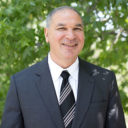8 Ways Christians Can Make Sense of Mass Shootings
The recent string of mass shootings in the US and worldwide has understandably rattled people’s nerves. Many wonder what they can do to protect themselves and, more importantly, what they can do to make sense of such acts of terror. I spent 36 years in law enforcement, retiring last year from the Los Angeles Police Department as a deputy chief of police. I am also a Christian. As a police officer, I’ve been trained to engage in direct combat in the event of such attacks, and I’ve worked with experts in how mass-murderers think and operate. In light of my background, I want to offer eight tips on how Christians can be both shrewd and compassionate in our response to terrorism.
1. Do Not Be Shocked by the Existence of Evil
The presence of evil in any form should not surprise Christians. Scripture states that humans are universally sinful (Psalm 14:2–3); therefore we can expect to encounter the consequences of sin. Moreover, Ephesians 6:12 tells us, “Our struggle is not against flesh and blood, but against the rulers, against the authorities, against the powers of this dark world and against the spiritual forces of evil in the heavenly realms.” While this struggle applies to grappling with sin and the forces of evil, it reminds us that physical battles have spiritual origins. We are called to be shrewd in dealing with evil (Matthew 10:16), and God has not left us defenseless in these battles.
Mass-casualty attacks will likely continue to occur, and when they do, the media coverage will be relentless and graphic. But Christians need not respond with paranoia or apathy. The reality is that, as horrific as mass shootings are, they are comparatively rare. We are more likely to be killed in a car accident than killed by a terrorist, so we should temper our responses accordingly.
2. Love Our Enemies—But Don’t Let Them Destroy Us
Christians are called to pray without ceasing, give comfort to the hurting, and love even our enemies (Matthew 5:44). That last charge jars us when we see our enemies attack with—and even revel in—brutality.
Loving our enemy does not mean offering a violent attacker aid or comfort. If an attacker tries to harm you, you cannot allow them to complete their sin by being a passive victim. “Turning the other cheek” does not apply in such situations since the enemy is not merely insulting you (the context of the cheek-turning command), but is attempting to destroy you. Each of us is a temple of the Holy Spirit. If it is within our power, we should seek to resist being defiled or destroyed.
3. Show Christ’s Compassion to Victims
When people erroneously deem Muslims as terrorists and then assault them, we can show Christ’s compassion. Imagine the effect Christians could have if they approached a Muslim family whose house was firebombed and said, “In the name of Christ, we’re here to help you. Here is some food and clothing and our promise to continue helping you.” There is no better testimony of Christ’s love for the lost than when His followers tangibly and openly express that love in His name.
4. Seek Protection from the Government
God creates and authorizes governments to use force to suppress evildoers (Romans 13:1–5). Christ’s followers must then participate in and make use of the government God has given us. In Acts 25:11, Paul appealed to the authorities to protect him. His treatise on the authority of government in Romans 13 demonstrates that God ordained government as an institution to protect us. We should therefore demand diligence of our police and government in the work to protect us from evil actors, for officials have the means and resources we as citizens alone do not.
5. Don’t Let Response Lags Immobilize You
In sudden, violent attacks there are several factors that delay individuals from responding quickly. A perception lag, which is the time it takes to merely process a perceived threat, usually takes about a half-second to a second. This lag is universal and varies between individuals, depending on conditions. Fatigue, distraction, and drug or alcohol consumption are a few factors affecting perception lag. There is also a psychological incredulity lag. This particular lag is at play when a sudden, unexpected violent attack occurs and the victim or observer cannot believe it’s happening. The shock of unexpected violence takes so much time to process that in many cases the processing is not complete until well after the event.
The next lag is the planning and implementation lag, which is the time it takes an individual to plan and implement a response to the threat. It is at this point where the “fight, flight, or freeze” response occurs. In the absence of a counterattack plan, an individual will flee from the threat or will be so overwhelmed that he or she freezes. The individual can reduce the planning and implementation lag by receiving training and improving situational awareness. Aside from police or military personnel, few people are likely to be trained to promptly counter a threat; but you needn’t be a SWAT officer to prepare yourself for a possible attack.
6. Be Mindful of Surroundings
You can reduce the incredulity lag and the planning-implementation lag by observing your surroundings. Ask yourself, where is the nearest exit? Where is the nearest solid object I can use for cover? You can also rehearse “what if?” scenarios in your mind wherever you are. What if attackers are at all the exits? What if they’re coming toward me? What if everyone is running toward the only exit and crowding my escape? The point is to start thinking ahead whenever you’re in public spaces. You needn’t be paranoid, just mentally prepared. If, by knowing your surroundings, you can quickly come up with a plan of action during an attack, you’ll greatly improve your odds of surviving.
In addition to knowing your surroundings, it’s important to always know where you are. You do not need to memorize the address of your location, but you should at least know what city you’re in and the closest major cross-streets to help police find you. Knowing at least three landmarks nearby is also helpful. For example, telling a police dispatcher, “I’m 100 yards east of Home Depot, Starbucks, and a Ford dealership,” is helpful. Local officers typically can figure out locations from landmarks.
7. Call the Local Police, Not 9-1-1
Another easy thing to do is to have the phone number of your local police or sheriff’s department saved in your contacts. Calling 9-1-1 on a cell phone will not guarantee that you’ll connect with the closest police agency. You should have the local agency’s direct number in your phone in case you need immediate assistance.
8. Contemplate the Consequences of Gun-Ownership
As a retired deputy chief, I am often asked about civilian gun ownership, so it seems appropriate to answer that question here. Firearm ownership is a personal decision—one I won’t attempt to make for anyone. If you should choose to buy a firearm for self-defense, then I would recommend following these three guidelines: (1) always obey the law; (2) get formal, reputable training on how to safely maintain, shoot, and deploy a firearm lawfully and effectively; and (3) do not buy a gun for self-defense unless you have deeply contemplated what it means to shoot someone—and you are prepared for the emotional, psychological, and legal consequences of doing so.
When the next tragedy occurs, remember that the world is watching us as Christians. Will we overreact? underreact? Will we act and speak wisely in a society driven by media hype?
Above all else, we are Christ’s followers. The rise in mass-casualty attacks presents believers with opportunities to make the gospel real to a world becoming increasingly aware of its mortality. When others seek only to bring hate, fear, and blame, we owe it to Christ to bring tangible blessings to a world longing for hope.
Mark Perez
Mark Perez is a retired deputy chief from the Los Angeles Police Department and holds a master’s in philosophy of science from California State University-Los Angeles, a CSU certificate in critical thinking, and a master’s in public administration from American Military University. Mark facilitates Reasons Institute’s Critical Thinking Skills course and participates in RTB’s Visiting Scholar Program.






